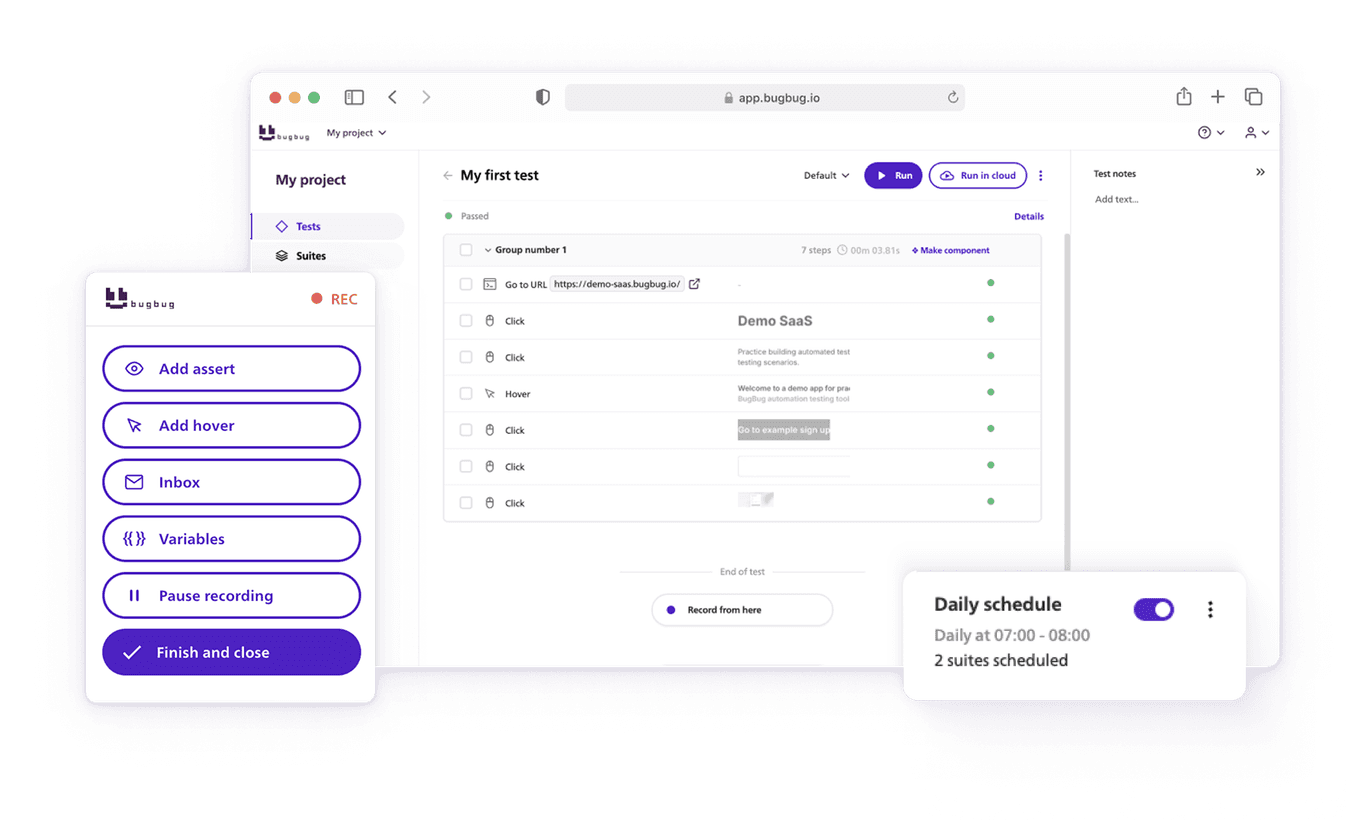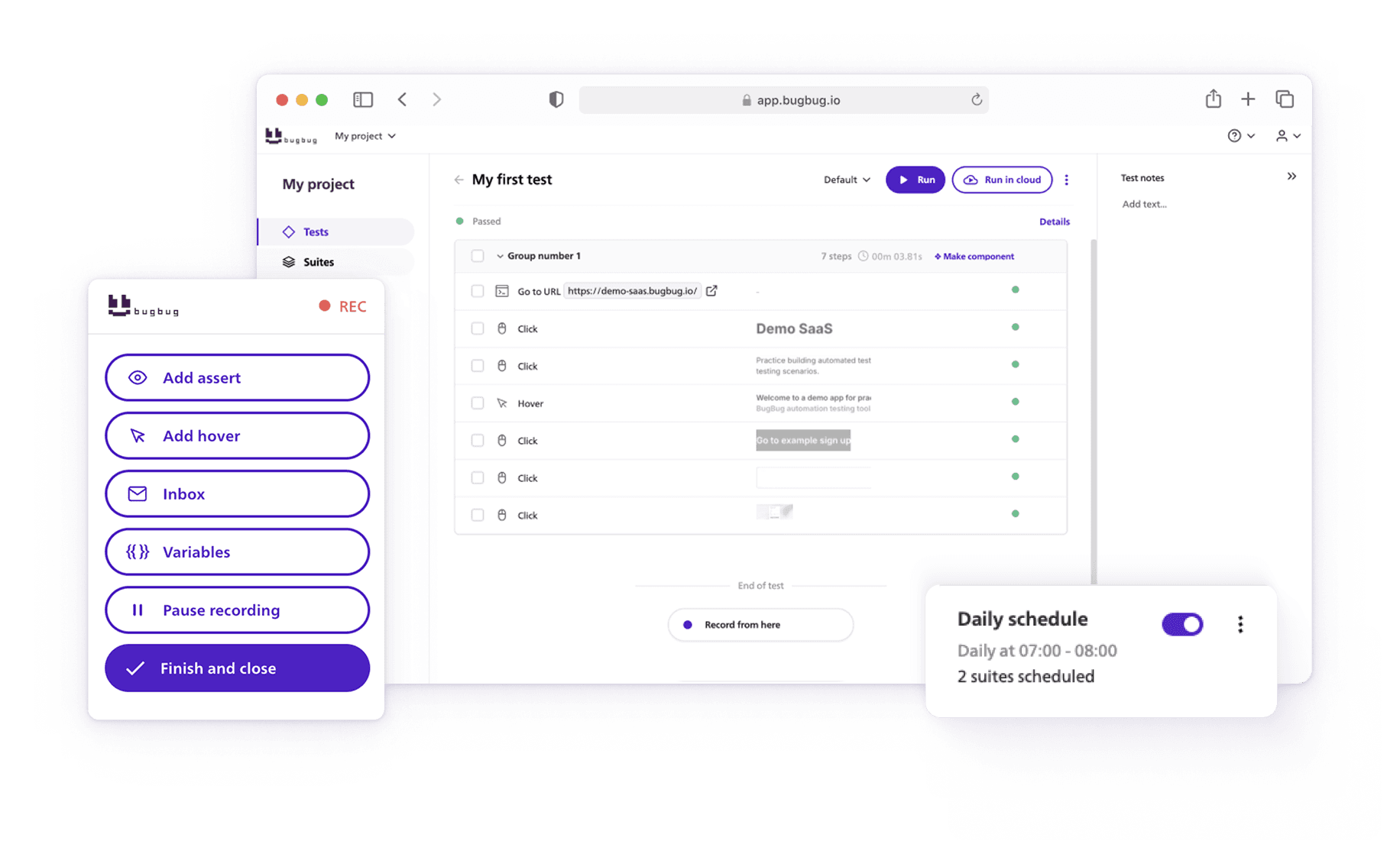Magento is an open-source e-commerce platform written in PHP. It provides a flexible shopping cart system, control over the look, content, and functionality of online stores. Magento offers powerful marketing, search engine optimization, and catalog-management tools. Let's explore the importance of Magento Testing.
TL;DR
- Magento QA testing ensures the reliability and quality of e-commerce websites using methodologies like browser testing, integration testing, and functional test cases.
- Key testing components include functional testing, UI testing, API testing, and compatibility testing, utilizing tools such as Selenium and Magento Functional Testing Framework (MFTF).
- Functional testing is crucial for verifying that all features work correctly, enhancing user experience, preventing revenue loss, and ensuring compliance and security.
- By using IDE and CLI tools, conducting regular web and mobile app testing, and employing strategies like Test-Driven Development (TDD), Magento testing aims to deliver a robust, bug-free e-commerce platform.
Check also:
- The Ultimate XPath Cheat Sheet
- Best Selenium Practice Websites
- Top Rainforest QA Alternatives in 2024
- TL;DR
- What Is Magento Testing?
- Tools and Technologies
- Types of Magento Testing
- Why Use Magento?
- Magento vs. Shopify vs. WordPress
- Organizations Using Magento
- Functional Testing and Its Brief Overview
- Why Functional Testing Is a Must for Magento Applications?
- How to Perform Magento Functional Testing?
- Magento QA Testing - Final Thoughts
What Is Magento Testing?
Magento testing is a crucial aspect of ensuring the quality and reliability of e-commerce websites built on the Magento platform. It involves various testing methodologies and tools to verify that the application functions correctly, meets business requirements, and provides a seamless user experience.
Key Components of Magento Testing
- QA (Quality Assurance): Ensures that the e-commerce application meets the desired quality standards through systematic testing processes.
- End-to-End Testing: Validates the entire workflow of the e-commerce website, from the front-end user interactions to back-end processes.
- Automation Testing: Uses testing tools and scripts to automate repetitive test cases, improving efficiency and coverage.
- Unit Tests: Focuses on individual modules and components of the Magento application, often written in PHP and JavaScript.
- UI Testing: Verifies that the user interface is intuitive and functions as expected across different browsers and devices.
- API Testing: Ensures that the APIs, including third-party integrations, work correctly and securely.
- Compatibility Testing: Checks that the application is compatible with various operating systems (OS), browsers, and devices.
Automate your tests for free
Test easier than ever with BugBug test recorder. Faster than coding. Free forever.
Get started
Tools and Technologies
- Magento 2: The latest version of the open-source e-commerce platform by Adobe.
- Adobe Commerce: The enterprise version of Magento, offering advanced features and support.
- Testing Tools: Popular tools include Selenium, Magento Functional Testing Framework (MFTF), and other automation testing tools.
- XML Files: Used for configuration and defining test cases in Magento.
- JavaScript and PHP: Core programming languages used in developing and testing Magento applications.
Types of Magento Testing
- Functional Testing: Ensures that all functionalities of the Magento application work as intended.
- Performance Testing: Assesses the application's performance under various conditions to ensure it can handle high traffic.
- Security Testing: Identifies vulnerabilities and ensures the application is secure from threats.
- Regression Testing: Verifies that new updates or changes do not introduce new bugs.
Why Use Magento?
Magento is a powerful and flexible ecommerce platform designed for businesses of all sizes. It offers extensive customization options, robust features, and a scalable architecture that can grow with your business. Key reasons to use Magento include:
- Flexibility and Customization: Magento allows for extensive customization of both the front-end and back-end, enabling businesses to create unique and tailored online shopping experiences.
- Scalability: Magento is built to handle large volumes of products and high traffic, making it suitable for both small businesses and large enterprises.
- Rich Feature Set: It includes built-in features such as SEO tools, product management, and multi-store capabilities, reducing the need for additional plugins.
- Community Support: A large community of developers and users provides a wealth of resources, extensions, and support.
Magento vs. Shopify vs. WordPress
When choosing an e-commerce platform, Magento, Shopify, and WordPress are three popular options, each with its own strengths and weaknesses.
- Magento:
- Pros: Highly customizable, scalable, rich feature set, robust community support.
- Cons: Requires technical expertise, higher initial setup costs, potentially higher ongoing maintenance costs.
- Best For: Large businesses or those needing extensive customization and scalability.
- Shopify:
- Pros: User-friendly, quick setup, reliable hosting, excellent customer support.
- Cons: Limited customization compared to Magento, ongoing subscription fees, additional costs for apps and themes.
- Best For: Small to medium-sized businesses looking for an easy-to-use, hosted solution.
- WordPress (WooCommerce):
- Pros: Flexible content management, extensive plugin ecosystem, cost-effective.
- Cons: Requires regular maintenance and updates, can become complex with too many plugins, hosting not included.
- Best For: Small to medium-sized businesses already using WordPress or those needing extensive content management capabilities alongside e-commerce.
Automate your tests for free
Test easier than ever with BugBug test recorder. Faster than coding. Free forever.
Get started
Organizations Using Magento
Many well-known organizations use Magento for their e-commerce operations due to its flexibility and scalability. Some notable examples include:
- Coca-Cola: Uses Magento for its customized online store to enhance customer engagement and sales.
- Nike: Utilizes Magento for specific regions to handle high traffic and provide a seamless shopping experience.
- Ford: Uses Magento to manage its merchandise store, showcasing its ability to handle a diverse range of products.
Functional Testing and Its Brief Overview
Functional testing is a type of software testing that validates the software system against the functional requirements/specifications. The purpose of functional testing is to ensure that the application behaves as expected and all functionalities are working correctly.
- Key Aspects:
- Test Cases: Written based on the functional specifications of the application.
- Validation: Ensures that the output of the application is as expected.
- Types: Includes unit testing, integration testing, system testing, and acceptance testing.
Why Functional Testing Is a Must for Magento Applications?
Functional testing is crucial for Magento applications due to the following reasons:
- Ensures Functionality: Validates that all features and functions of the e-commerce platform work as intended.
- Enhances User Experience: Ensures a smooth and error-free shopping experience for users, which is critical for customer satisfaction and retention.
- Prevents Revenue Loss: Identifies and resolves issues before they impact customers, preventing potential revenue loss from abandoned carts or transaction failures.
- Compliance and Security: Ensures that the application complies with industry standards and security protocols, protecting customer data and transactions.
How to Perform Magento Functional Testing?
In Magento development and testing, various types of testing are employed to achieve a bug-free and reliable e-commerce application. Unit tests focus on individual units of the application, while integration tests ensure that various components and third-party systems work harmoniously. End-to-End (E2E) testing verifies that the entire web app, from frontend to backend, operates as intended, providing a consistent and reliable experience for business owners and end-users alike. Testing strategies like Test-Driven Development (TDD) enable the QA team to write tests before actual coding begins, ensuring that all functionalities are covered and reducing the likelihood of errors.
Automate your tests for free
Test easier than ever with BugBug test recorder. Faster than coding. Free forever.
Get started
To configure an optimal testing environment, both IDE (Integrated Development Environment) and CLI (Command Line Interface) tools are utilized for writing and executing tests. Regular web testing ensures that your Magento site remains competitive and reliable. Mobile app testing guarantees that the e-commerce site delivers a seamless experience on mobile devices. With a focus on development and testing, Magento integration testing, and ensuring the site is bug-free, business owners can provide a robust and efficient e-commerce platform with minimal effort. This thorough testing process ensures that every aspect, from individual units to the entire web application, is meticulously examined, offering end-users the best possible experience.
Performing functional testing on a Magento application involves several steps:
- Requirement Analysis: Understand the functional requirements of the Magento application.
- Test Planning: Develop a test plan outlining the scope, objectives, resources, and schedule for the testing process.
- Test Case Development: Write detailed test cases based on the functional requirements and business scenarios.
- Environment Setup: Prepare the test environment, including the Magento instance, test data, and tools.
- Test Execution: Execute the test cases and record the results. Use automation tools like Selenium or Magento-specific testing frameworks like MFTF (Magento Functional Testing Framework) to streamline the process.
- Bug Reporting and Tracking: Report any defects found during testing and track them until they are resolved.
- Regression Testing: Re-test the application after fixes to ensure that new changes do not introduce new issues.
- Reporting: Provide detailed test reports and feedback to the development team.
Magento QA Testing - Final Thoughts
Magento QA testing is a critical aspect of ensuring that your e-commerce website operates smoothly and efficiently. By conducting comprehensive browser testing, developers can verify that the Magento-based storefront performs optimally across various browsers, offering end-users the best experience possible. Integration testing is also crucial, as it validates the seamless interaction between Magento and third-party software like CRM systems, ensuring all components work together without issues. This process involves writing functional test cases to test your website's core functionalities, checking for proper handling of login credentials, and verifying error messages are informative and helpful.
Happy (automated) testing!



